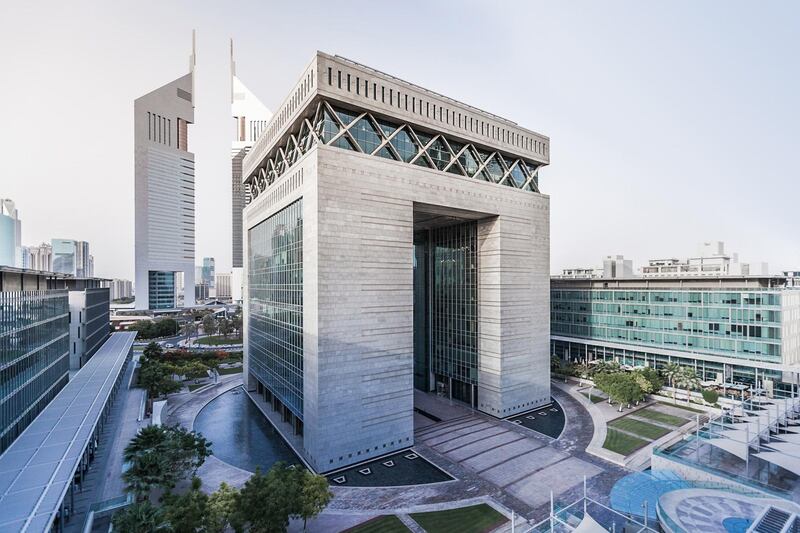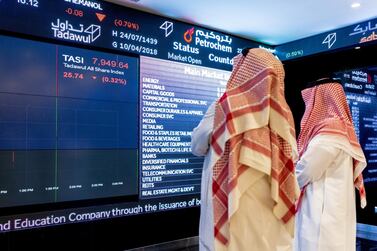Fewer mergers and stock market listings meant a slower year for the region’s investment banks in 2020, with the overall fees earned dropping 12 per cent to $1.2 billion, according to data provider Refinitiv.
Advisory work on debt deals boomed, with bond issuers from the Middle East and North Africa raising a record $120.7bn – a 15 per cent year-on-year increase. The UAE was the most active issuer, with sovereign and corporate borrowers raising about a third of this, or $40.6bn.
However, following a bumper 2019 that featured the world’s biggest stock market listing – Saudi Aramco’s $25.6bn initial public offering – fundraising on Mena equity markets plunged 86 per cent last year to $4.6bn.
Some $70.3bn of mergers and acquisitions involving Mena companies were completed last year.
"This makes 2020 the fourth highest annual total of all time, despite falling 47 per cent in value from the record high achieved [in 2019] with Saudi Aramco's agreement to buy a stake in Saudi Basic Industries Corp for $69.1bn," Refinitiv's 2020 Mena Investment Banking Review showed.
The biggest merger deal last year was the $15.6bn merger between Saudi Arabia’s National Commercial Bank and Samba Financial Group. The second-biggest was the $10.1bn sale of a 49 per cent stake in Abu Dhabi National Oil Company’s gas pipeline network to a group of investors including Singaporean wealth fund GIC, Global Infrastructure Partners and Brookfield Asset Management.
About two-thirds of the investment banking fees generated in the region were earned by bankers based either in the UAE or Saudi Arabia. Some $433.9m – or 36 per cent – of the total was generated in the UAE and $382.9m was generated in Saudi Arabia. HSBC was the top fee earner, with an 8.6 per cent share of the total fees earned, followed by JP Morgan with 7.1 per cent and Citi with 6.3 per cent.
The slightly more subdued market meant salaries in the investment banking sector remained largely flat last year, with 54 per cent of respondents to Hays’ 2021 GCC Salary and Employment Report saying their salary remained unchanged, 9 per cent reporting a cut and 37 per cent an increase.
"Expectations for this year are that investment professionals' salaries will remain stable, if not increase," Daivik Malhotra, a banking and financial services recruiter for Hays Middle East, told The National.
Hiring rates were low as a result of Covid-19, but “picked up significantly in the last quarter of 2020 and we expect this to continue into 2021”, he added.
“International investment banks, who are largely based in DIFC, are doing the most hiring in the region. Demand for their services has remained strong,” he said.
Hays’ salary survey found that a director-level post in the industry attracted an average salary of about Dh80,000 per month, while a senior associate’s average pay was about Dh60,000 and an associate Dh40,000.








